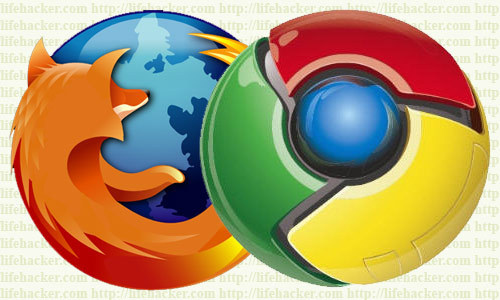Browsers are the center of action when it comes to surfing the Web. What better way can it be that the two major browsers, sustained by Google and Mozilla, will be able to talk to each other via the WebRTC support. Yes, you have read it right. Yesterday, the two browser giants came together and exhibited their teaming up.

The news is, though the additions haven’t been yet made to the final versions of the two browsers, you can still grab a piece of thought and functionality by using the Chrome 23 beta and the latest Firefox Nightly versions.
The Chrome beta version will work fine and out of the league, whereas in Firefox you will have to play with the settings. Go to about:config and set the media.peerconnection.enabled preference to “true.” After this, without looking at the browser you are working on, make way to the WebRTC demo site to take charge of the video calling.
A link was posted on the same YouTube video, by the two companies, to show the incorporated feature. This call is between Hugh Finnan, Google’s Director of Product Management and Todd Simpson, Mozilla’s Chief Innovation Officer.
Well, WebRTC is an open source project that assists users with the capability to communicate in real-time mode via voice and video. For this, it uses a Real-Time Communications (RTC) browser. This feature also enables the Web app developers to enclose real-time video calling and data sharing functionalities in their products.
The search engine giant, Google, on its part, thanked the W3C and the IETF communities in building a platform where Chrome and Firefox will be able to use Opus and VP8 codecs for audio and video, DTLS-SRTP for encryption and ICE for networking. Mozilla on the other hand laid more significance in thanking the close collaboration between the open Web community and the engineers from both the companies. It applauded the effort put-in. Mozilla had first added this WebRTC support in Firefox 18, which was released on January 8th, but Nightly works much better when compared.
RTCPeerConnection interoperability refers to the fact that developers can now create WebRTC applications that help in making direct audio and video calls to other WebRTC applications, without installing a third-party plug-in. If you are planning to build such an app, then there are certain differences which should be known before starting ahead.
As the functionalities are built into the browser, users don’t have to take the headache of installing anything, whereas the developers can arrange their apps easily and conveniently. From a developer’s point of view, you should go ahead and check the demo app’s source code together with the library that lends all the attributes.
